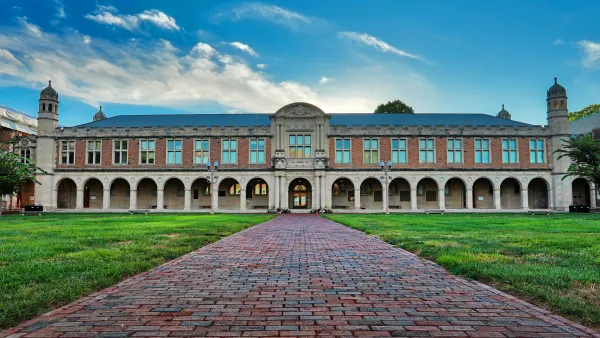Bronwen Konecky, assistant professor in the Department of Earth and Planetary Sciences, and her collaborators won a grant from the David and Lucile Packard Foundation's Diversity, Equity, and Inclusion (DEI) Pilot Fund for a new DEI initiative, Undergraduate Research in the Geosciences for Under-Represented Groups (URG2). Through the new fund, the Packard Foundation aims to increase diversity in STEM by providing additional resources to support their fellows’ DEI efforts in their home departments and universities.
“In order to solve the problems facing the Earth, we need all hands on deck,” Konecky said. “Earth science has long struggled with diversity, yet it has the most diverse set of stakeholders.”
Since Konecky was named a Packard fellow in 2019, she’s made the most of the connections afforded by the Packard Foundation, establishing relationships with other fellows, particularly those in the geosciences. These connections and ongoing conversations around issues of diversity, equity, and inclusion in STEM underpin the creation of URG2.
Through URG2, Konecky and seven other geoscientist fellows are collaborating to provide positive research experiences. They offer paid summer research opportunities to undergraduate students interested in using physics, chemistry, biology, math, and data science to better understand the Earth. They also hope to encourage students without specific experience with geosciences to participate and develop skills and interests from existing strengths through mentorship. All interested students are encouraged to apply.
“Undergraduate research experiences are really formative and can be an important pipeline for pursuing further studies in the geosciences,” Konecky said. “Even if students don’t ultimately pursue a career in geosciences, the type of research we do is inherently empowering. When a student comes to work in my lab and does a cool project, they not only leave with a deeper understanding of climate change, but they also leave with skills that are applicable to a lot of different careers.”
“We welcome all students who are curious about geoscience, regardless of their background or prior experience,” Konecky continued. “Students from small colleges might not have had many opportunities to take Earth science classes, but they already know more than they realize because they took chemistry, biology, physics, or math. Our job is to teach them how they can use those tools and concepts to study the planet.”
By joining forces to launch URG2, Konecky and her collaborators across the country are seizing an opportunity to create a critical mass of students and mentors who can provide more opportunities, resources, and support than may be available at any individual institution. They are recruiting students from all types of universities, including minority-serving institutions and community colleges, to do cutting-edge research in areas ranging from climate change to earthquakes. The summer program kicks off with an in-person team- and skill-building seminar in Washington State with a field trip to Mount Rainier. Then, students will return to their host institutions to gain hands-on research experience and mentorship as well as ongoing professional development and skill building opportunities with their virtual cohort.
“By pooling our efforts together and creating a cohort, we can share resources while also promoting a sense of belonging and camaraderie among the students,” Konecky said.


